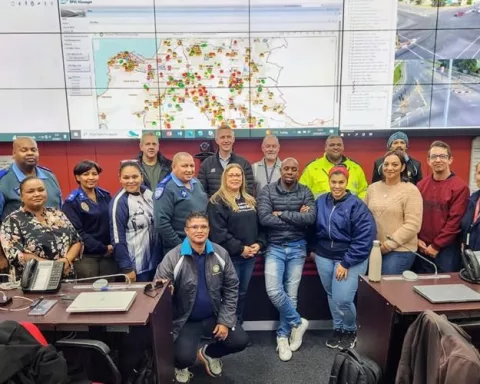South Africa’s National Senior Certificate Examinations are about to begin, with over 900,000 students participating across 6,898 centers. These exams are critical for students as they determine eligibility for higher education and other tertiary institutions. The South African government is dedicated to supporting these students and has invested significantly in the education sector, providing equal opportunities for all learners. The Class of 2023’s success in these exams will pave the way for a brighter and more prosperous South Africa.
What are South Africa’s National Senior Certificate Examinations?
The National Senior Certificate (NSC) exams are South Africa’s final assessments for high school students. These exams are critical for students as they determine eligibility for higher education and other tertiary institutions. The exams are conducted across 6,898 centers, with 207 exam papers written throughout the examination period. South African students have historically shown outstanding performance in the NSC examinations, with pass rates consistently increasing over time.
Preparing for the Exams
With 717,377 full-time and 181,143 part-time students in South Africa’s public education system, the National Senior Certificate (NSC) examinations are about to commence. Minister Khumbudzo Ntshavheni offers her warmest regards and confidence in the students’ readiness for this significant undertaking. The exams will be conducted across 6,898 centers, with 207 exam papers written throughout the examination period.
Minister Ntshavheni expresses her appreciation for the Department of Basic Education, school management, and educators who have prepared the Class of 2023 for their final assessments. Both public and private education schools are deemed ready for this critical journey. As determination and hard work are essential to success, the government urges parents, guardians, and society at large to support these future leaders and influential community members.
The government emphasizes the importance of supporting these students in their academic endeavors and encourages parents and guardians to create a conducive learning environment. Students experiencing anxiety and stress during this period are advised to speak to a trusted individual or contact the South African Depression and Anxiety Group at 0800 567 567.
Exam Logistics and Significance
Although the President has not yet addressed the nation, October 30th, 2023, remains an ordinary working day, ensuring the NSC examinations’ smooth start. The English additional language paper, scheduled for that day, will have participation from over 95% of registered matric exam candidates, totaling nearly a million learners. Over 72,500 invigilators across the 6,898 centers are responsible for maintaining the exams’ integrity and have the government’s best wishes.
The NSC examinations are crucial for South African students, as they provide access to higher education and opportunities to contribute to the nation’s development. Students’ performance in these exams determines their eligibility for university entrance, technical and vocational education and training (TVET) colleges, and other tertiary institutions. Achieving success in the NSC examinations paves the way for individual aspirations and dreams, and addresses the country’s skills shortages.
South African students have historically shown outstanding performance in the NSC examinations, with pass rates consistently increasing over time. The Class of 2022 achieved an impressive 75.6% pass rate, significantly improving from the previous year’s results and demonstrating the students’ and educators’ dedication and resilience. This upward trend is expected to continue with the Class of 2023, further solidifying progress in the South African education system.
Personal Development and Government Support
Beyond academics, the NSC examinations serve as a vital milestone in young South Africans’ personal development. As students face the challenges and pressures of these exams, they acquire essential life skills such as time management, goal setting, self-discipline, and stress management. These skills will undoubtedly be invaluable as they transition to higher education, the workforce, and adult life.
The South African government’s dedication to education is evident through its significant investment in the sector, accounting for 20.1% of total government expenditure in 2023. This financial support has enabled various interventions and initiatives aimed at improving education quality, including teacher training, infrastructure development, and curriculum enhancements. Additionally, this investment has allowed learners from disadvantaged backgrounds to access quality education through fee-free schools, thus reducing inequality and providing equal opportunities for all.
United in Supporting the Class of 2023
As the Class of 2023 embarks on this momentous journey, the South African nation stands in solidarity, offering unwavering support and encouragement. The combined efforts of the government, educators, parents, and society form a foundation for the success of these young scholars, paving the way for a brighter and more prosperous South Africa.
Together, we eagerly await the positive outcomes of the National Senior Certificate examinations and the promising future that lies ahead for the Class of 2023.
1. What are South Africa’s National Senior Certificate Examinations?
The National Senior Certificate (NSC) exams are South Africa’s final assessments for high school students. These exams are critical for students as they determine eligibility for higher education and other tertiary institutions.
2. How many students are participating in the NSC examinations?
Over 900,000 students are participating in the NSC examinations across 6,898 centers.
3. When do the NSC examinations begin?
The NSC examinations are scheduled to begin on October 30th, 2023.
4. What is the significance of the NSC examinations for South African students?
The NSC examinations provide access to higher education and opportunities to contribute to the nation’s development. Students’ performance in these exams determines their eligibility for university entrance, technical and vocational education and training (TVET) colleges, and other tertiary institutions.
5. What skills do students acquire during the NSC examination period?
As students face the challenges and pressures of these exams, they acquire essential life skills such as time management, goal setting, self-discipline, and stress management.
6. How has the South African government supported the education sector?
The South African government has invested significantly in the education sector, providing equal opportunities for all learners. This financial support has enabled various interventions and initiatives aimed at improving education quality, including teacher training, infrastructure development, and curriculum enhancements.
7. How can students experiencing anxiety and stress during the exam period seek help?
Students experiencing anxiety and stress during this period are advised to speak to a trusted individual or contact the South African Depression and Anxiety Group at 0800 567 567.
8. What is the pass rate for the NSC examinations?
South African students have historically shown outstanding performance in the NSC examinations, with pass rates consistently increasing over time. The Class of 2022 achieved an impressive 75.6% pass rate.








